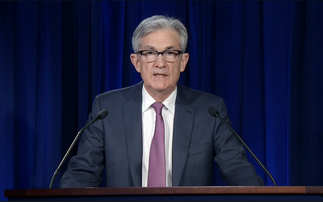
Johann Plé, Axa Investment Managers
Can you give a brief overview of your strategy in terms of what you are trying to achieve for investors, your investment process and the make-up of the investment team?
Strategy
A global and diversified solution, AXA ACT Green Short Duration Bond Fund (the Fund) focuses exclusively on 0-5 year green bonds. The strategy offers investors a solution that seeks to reduce exposure to climate change risks and invest in companies better positioned to seize opportunities in a low carbon economy. By concentrating on short-dated bonds, the Fund provides the benefit of the green bond exposure while ensuring a lower duration profile and lower volatility than the traditional green bond universe.
Investors also benefit from the Fund's access to transparent and measurable impact metrics and its alignment to the UN Sustainable Development Goals on environmental and societal issues. AXA IM is committed to ensuring transparency so investors receive a dedicated impact report with specific KPIs, and information regarding environmental project finance.
Investment Process
The investment process is based on our global and active fixed income process that has three main steps:
- Defining AXA IM key fixed income investment views for the upcoming quarter;
- Reflecting the ESG criteria and implementing our proprietary green bond framework;
- Building an efficient asset allocation over the global green universe using qualitative views and quantitative tools.
The outcome is a purist approach that focuses on green bonds and reflects four environmental themes: smart energy solution, low carbon transportation, green buildings, sustainable ecosystem, within a global aggregate profile.
Team
AXA IM's global fixed income teams are structured according to investment styles, reflecting our clients' investment choices. These specialised streams are all able to draw upon various shared resources, both within Fixed Income and around the broader organisation.
The Fund is managed by Johann Plé, the lead portfolio manager, and Li Rui, CFA the back-up portfolio manager. They work hand in hand with Responsible Investment analysts and fundamental credit analysts specialised by sectors.
How are you positioning your portfolio in uncertain times?
The Fund's lower duration profile allows it to be well positioned for uncertain times. This is because bonds with lower duration have reduced sensitivity to interest rates versus the wider all-maturities market. At a time when interest rates are expected to increase, by investing exclusively in 0-5 year bonds, the Fund is able to offer investors a fixed income solution that not only reduces sensitivity to changes in interest rates, but also overall volatility.
In addition, the fund is managed actively so can dynamically utilise a wide range of performance drivers, from term structure management to asset allocation or geographical allocation. In uncertain times, this enables us to reduce the strategy's drawdown, and seize opportunities that arise with volatility. Hence, despite a cautious stance on credit, we have taken advantage of recent market conditions to allocate towards short-dated subordinated debts that provide attractive valuations. Earlier this year we reduced our exposure to emerging market debt but are now monitoring this segment as it provides attractive risk diversification benefits.
Can you identify a couple of key investment opportunities for your fund you are playing at the moment in the portfolio? This could be at a stock, sector or thematic level.
We believe the current environment is creating multiple opportunities in the market. Yet, the current uncertainty advocates for cautiousness. Hence, we are opting for a gradual approach to these opportunities.
The first one we identify lies with the term structure. We believe the Euro yield curve seems too steep compared to US or UK yield curves.
The second one lies within credit, which has significantly repriced since the beginning of the year. This provides attractive opportunities in the short-dated segment, which is usually less volatile.
In the same vein, we believe the sharp widening of the EUR swap spread makes the quasi-sovereign sector a defensive, yet quite attractive, allocation. In this context, agencies or government-guaranteed debts can provide a good opportunity to capture the current swap spread which stands at crisis levels.
Finally, we also monitor hedge cost dynamic, which is currently very favourable to holding euro-denominated debt when hedged back to sterling.
Click to learn more about AXA IM













